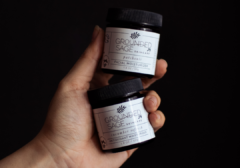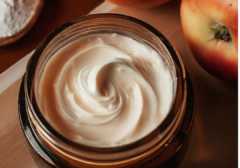
I often get this question, what’s the difference between an acne cause and a trigger?
When we’re talking about skincare problems there’s almost always a root cause and a trigger or two and then added together you get acne, eczema, rosacea, etcetera.
An acne cause is…
An underlying root cause, something that’s going on in your body, some imbalance, some issue that without a trigger likely won’t cause acne, but it’s under there, it’s in your body, it doesn’t ever come out on your skin until it’s paired with a trigger.
An acne trigger is…
Something by itself can’t cause acne, so that’s why if you break out from say, eating a lot of sugar and your best friend doesn’t, well it’s because you have an underlying cause and your best friend doesn’t. They can have that trigger without it causing acne.
What are some root causes?
These are the things you want to absolutely tackle as soon as possible, they’re also the things that take the longest to heal, take the most dedication to balance, but ultimately are what is going to make the most difference.
For acne, it’s things like poor gut detoxification. Anytime your digestive tract isn’t working right (if there’s a slow down / if it’s reabsorbing waste products like excess hormones that your bodies trying to get rid of, yet things aren’t moving fast enough so they get reabsorbed in the body) this can lead to skin issues. Anything that has to do with your digestive track almost always ends up being a root cause.
We’re talking about the bowels, the liver or anything down there. If you’re constipated, have diarrhea or bloat, these things can also be an indication of gut issues. Even having no symptoms doesn’t mean you can rule out gut problems. The reason is that some of them could be an imbalance in your gut flora. Something like probiotics would help but that doesn’t necessarily give you any sort of discomfort otherwise. That’s why sometimes it’s hard for people to believe that there are problems underlying that are causing acne. It doesn’t mean that on the inside everything is working exactly as it should and effectively as it should.
Back to root causes. There’s also insulin resistance. Anytime your blood sugar spikes it can affect your hormones, so we have to watch our insulin levels.

How inflammation plays a role
Chronic inflammation: For myself, this is especially an issue. I have chronic diseases that cause inflammation, so of course, my root causes of acne are very hard to tackle. That’s why I have to be especially careful with my triggers. Chronic inflammation doesn’t necessarily need to be something as big as mine, like fibromyalgia or ankylosing spondylitis. It can just be that your body is overworked, you’re stressed out, or any reason for your body to have inflammation, that can be a root cause.
A naturopath can go over all of the many, many ways that inflammation could happen in your body. It might take them a long time to go over all of them. However, there’s certainly a lot of different reasons for your body to create chronic inflammation.
Another root cause is nutritional deficiencies. This can include things like you’re not getting enough of a certain vitamin, a certain mineral, etc. For me, I need a lot of antioxidants, zinc, vitamin D, and a really good probiotic.
Triggers can be linked to things like your diet.
While nutritional deficiencies can be a cause, a trigger would be something you put in your body. The deficiency is already there. A trigger is such things as too much sugar in your diet, a high GI diet, stress, topical products, skincare products that aren’t right for you, and hormonal imbalances (A hormonal imbalance is a trigger because we often do things that trigger a hormonal imbalance. It wasn’t already there but we’ve done something to trigger it).
Foods that we’re allergic to can also be a trigger. If you’re not aware of food allergies and intolerances, talk to your naturopath or trusted medical professional about testing.
Add your cause and your trigger together and you get acne.
All you really need to know is if acne has been triggered, you have an underlying cause. You just have to figure out which cause it is and we’re here to help you with that.
Until next time,
![]()
Pin this article for later:





















